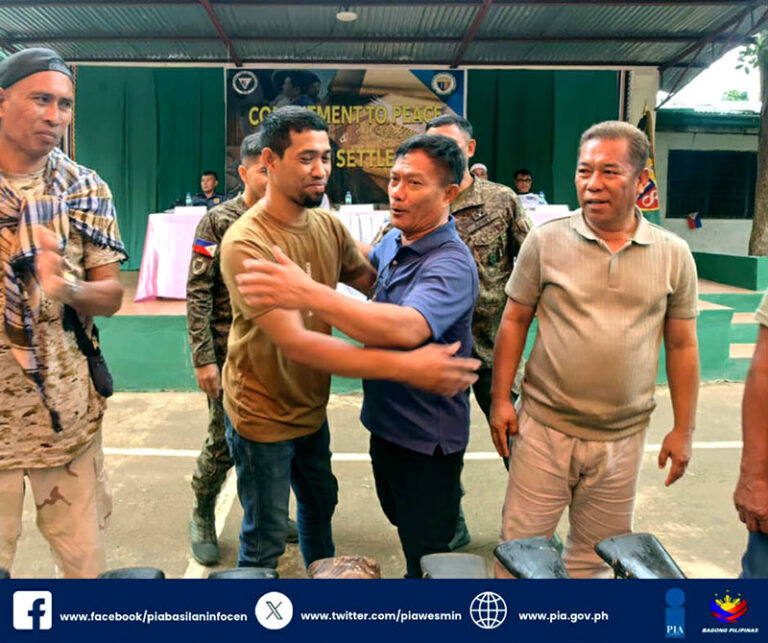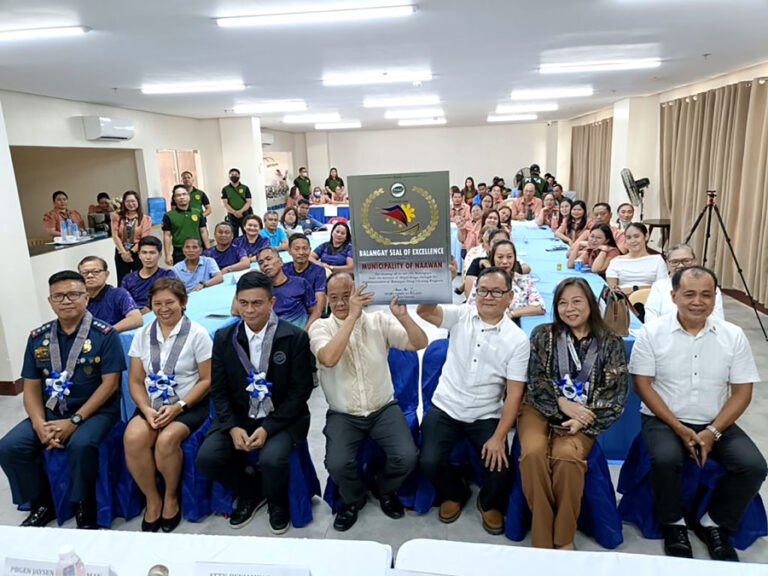THIS SELF-PROCLAIMED writer was a youth volunteer for Duterte in 1992, a youth organizer for BAROG (an erstwhile organization of youth, mostly out-of-school, for RODY Gihapon) in 1992-1998, and a member of the local legislative body in 2001-2010 as a guest candidate of Hugpong sa Tawong Lungsod (Mayor Rody Duterte’s local party). If all these make me a Dutertard, read on.
I was ushered into local governance years after Davao City trailblazed in women’s and children’s rights advocacies for passing the first Women Development Code in the Philippines in 1997 and the Children’s Welfare Code in 1994. These were legislated with the full support of Mayor Duterte, an alleged womanizer and promoter of extra-judicial killings.
Mayor Rody invited me as a guest candidate of Hugpong in 2001 as I was already a candidate of Bayan Muna, my national party then and now. I accepted his invitation with a caveat, “I am my father’s daughter and I am Bayan Muna’s representative”. And he did not cuss.
That caveat would define my office’s relationship with City Hall as we struggled and publicly debated on issues, local and national.
When two bombs successively rocked Davao City, Mayor Duterte was so furious he called for immediate US intervention, implying the latter could address the problem swiftly. We challenged his position. He listened and initiated an anti-terrorism military arm, more known as the Task Force Davao, instead.
The formation of the Task Force would not go unopposed as activists, peoples’ organizations and non-government organizations rallied against its presence. Human rights groups cautioned him against possible human rights violations and militarization.
He did not budge initially. But as soon as reports of sexual and human rights abuses were brought to his office and publicly, he announced the withdrawal of the local government’s support and rightly, in the budget submitted, no budget was earmarked for the Task Force. Its office in Ecoland was eventually down-scaled.
On several occasions when demands for the removal of CAFGU and military detachments in several areas because of human rights violations were made, he defended their presence. Eventually, he conceded that people are being abused rather than protected and called for the dismantling of some detachments in some areas in this city.
The issues of extrajudicial killings and capital punishment especially of minors have placed the Mayor in a very hot seat then and especially now. Some assumed that since these had gone unabated, these were instructed by or tolerated at the least by Duterte.
But the day the Mayor started lambasting Sen. Francis Pangilinan and his Juvenile Justice Law blaming it for what some of the youth have become, was the day that the local juvenile justice ordinance, which provides for a rehabilitation/intervention facility, was being cooked up at the halls of the Sanggunian (SP of Davao City). Unknown to some, people from the City Social Services and Development Office were working hard to beat the deadline that the Mayor had set to install a halfway home for children in conflict with the law, one of the major features of the Juvenile Justice Law. In 2012 Davao City passed its local Juvenile Justice Ordinance, with Mayor Duterte then presiding as Vice Mayor.
The story does not end there because even as I was already out of the City Council and busy attending to problems in Barangay Matina Crossing of endless cock-a-doodle-doo, lost Siamese cats, and juveniles prancing on CCTVs, I was summoned in 2013 to check on a property in Bago Oshiro where the children’s rehabilitation facility of the City would be erected.
I swear that the Mayor earmarked PhP 10 million for the establishment of this agriculture-focused facility. The children’s facility is an implementation of both the Juvenile Justice Law and the city’s own JJ ordinance. This is on top of the now existing halfway home, popularly known as the Lamdag, where children in conflict with the law who are awaiting disposition of their cases are housed. By the way, Lamdag goes further by providing psycho-social intervention.
That women interest the Mayor the most is public knowledge. Duterte flaunts his “womanizing” and kisses women in public almost as often as he curses. Gabriela, other women organizations, cause-oriented groups and my office lost no time in calling his attention and criticizing him publicly for his sexist remarks, reminding him of the Women Development Code he signed in 1997.
But while he was and still is unperturbed (as he is now doing on a national scale the sexist acts for which we criticized him) he would create the Integrated Gender Development Office (IGDD), a coordinative and monitoring office directly under his office.
He hired not one, but five lady lawyers purposely to protect women from violence and abuses committed by their husbands and common-law partners, and whose services were provided for free. The City went unprecedented when it created Sidlakan, a Gender-Sensitive Crisis Intervention Unit, designed to ensure that all services to women victims of violence are made accessible and available in one office. It also serves as a temporary shelter for these women.
Duterte’s interest in women and their issues has staggering effects considering that in the October 2015 City Wide Social Survey Series 4 of the Ateneo de Davao University, specifically by its Social Research Training and Development Office, violence against women was on the top three of the issues and concerns of male and female alike.
About 94% of the respondents of said survey agreed that violence against women and children is important news and therefore needs to be discussed publicly. In the same study, gender sensitivity (preference of 86.5%) was on the top 3 qualities that Davaoenos desire of a president in terms of political traits.
That same study reflects that 65% of the respondents were sad when Duterte declared he will not run in October, 22% were not happy because they “want him to stay here” (referring to Davao City) and 11% either refused to answer or were unsure of their feelings.
Duterte does not care if we misunderstand him but he sure understands women’s issues better than some women. Even before the national Reproductive Health Law was passed, Davao City passed its Women’s Health Clinic that addresses most if not all aspects of our health as women.
For years now, the City Health Office has made available ligation and vasectomy procedures for couples that wish to manage their family with the government’s intervention. The P3,000 given to every couple who availed of these procedures for free was not an incentive but Duterte’s affirmation that population management is not only a health issue but also an economic one.
With these, the question of whether I and most of the women of Davao City support Duterte is a foregone conclusion. Not because he walks his talk, but because (on issues affecting our women and children), he does NOT. (The author, Angela Librado-Trinidad is a mother, a lawyer, a former 3-term councilor and she now serves as Barangay Captain of Matina Crossing in Davao City.)



